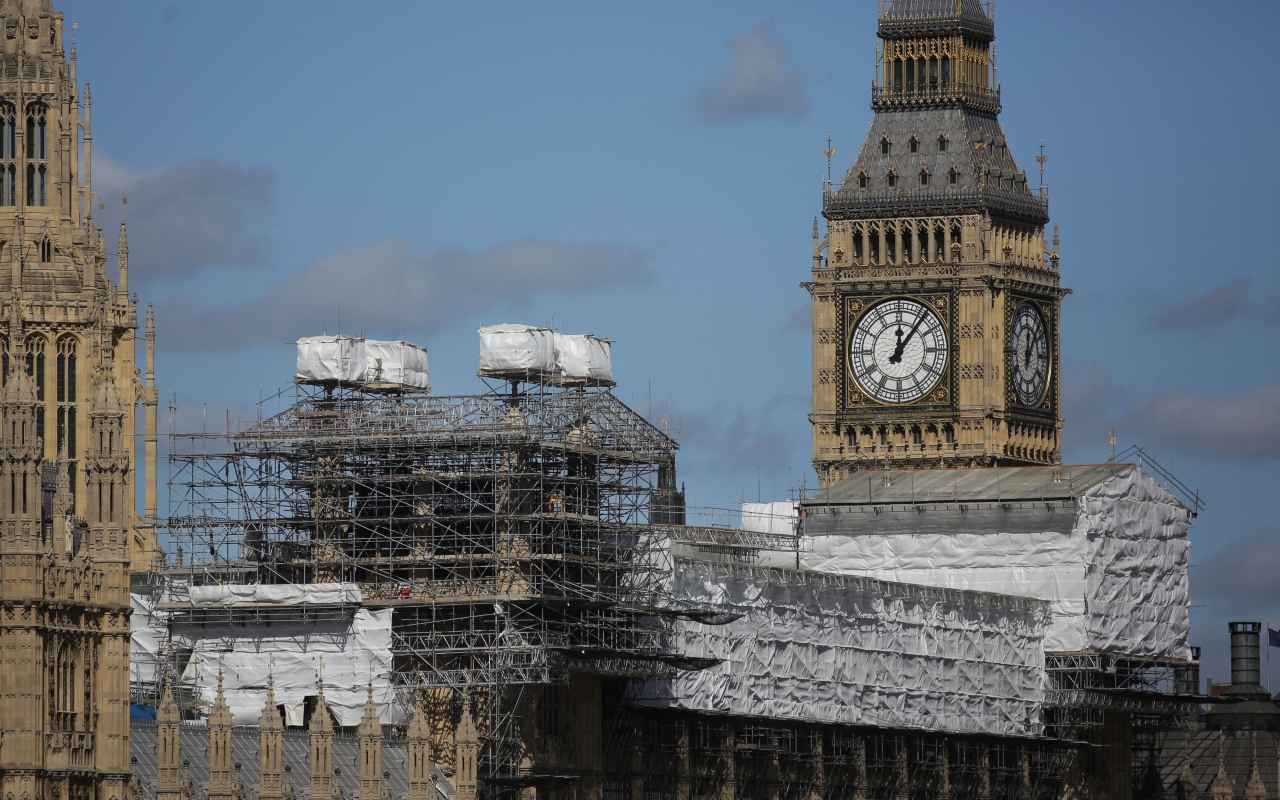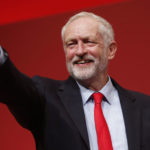
If this election and the conditions enabling it has taught us anything, it is that British democracy isn’t feeling too well and is in need of some drastic treatment. The fault for the illness of the democratic system lies with both main parties, the media and the archaic structures upon which we continue to rely, despite how nonsensical and obtrusive they constantly prove to be.
A healthy democracy requires an opposition capable of holding the government to account, particularly when the government favour a cynical authoritarian approach and will seemingly do anything to retain power. However, we did not previously have that under Corbyn. If he displays the same leadership, quiet charisma and passion that he has at times during this campaign then he can ditch the hollow crown he wore before and become a seriously credible opposition leader. Especially, as he now offers a clear alternative, outlining the areas about which he had been cagey in the past. But it was precisely this caginess that laid the groundwork for the election. Labour let the Article 50 bill go unchallenged, failed to provide a check to May’s populist bent and had so many public squabbles that they seemed to the cynical mind of May entirely unelectable. This meant that Theresa May was able to interpret the “will of the people” to suit her , or rather the hard right of her party’s needs. She was seemingly willing to carry out decisions on the most important process our country has faced in peacetime without consulting anyone. And, while her doing this was obviously undemocratic, it was enabled simply by the fact that there was no coherent force able to oppose her.
“The British Press in this election conducted a personal vendetta through mockery, misinformation and outright lies”
Although Labour are now a united force offering hope over the politics of vested interests and meaningless slogans, they were not the only ones who failed to hold the government to account. As part of the fourth estate, the press are supposed to provide a check to government when it strays too far from the path of legitimacy. That isn’t to say that all press should be non-partisan, unbiased and constantly critical of everything the government does. But, it should be the case that when the PM calls an unwanted and unnecessary election to try to obliterate the opposition and create a one-party state, the press responds with balanced analysis or reasoned argument.
Instead, we got screeching headlines branding 48% of the population “saboteurs” and disturbing glorification of “crushing” the opposition party and “smashing” Tory rebels. These headlines from The Sun and The Daily Mail, the two biggest UK newspapers, shows that the stranglehold a few individuals have on the British press means it fails in its role within the political system. It simply replicates the views of owners and editors who parade opinion as fact. This is highly dangerous as, in this case, the opinions held by the moguls and their editor attack dogs were to the detriment of a functioning democracy. Rupert Murdoch, owner of The Sun, reportedly stormed out of a room full of his colleagues when he saw the exit poll, indicating just how vested his interests were in encouraging the populous to vote one way rather than the other. Although, perhaps even more sinister than their fervent support of May and her authoritarian efforts, was their borderline obsession with trashing Corbyn.
Corbyn was always going to annoy the media: he challenges the establishment to which the majority of journalists, editors and owners belong. However, the grief Corbyn received saw any semblance of journalistic integrity and use of objective facts go out the window. A study by the LSE found that 68% of opinion pieces written about Corbyn in the 8 biggest British newspapers were negative. This in itself could be excusable, were it not for the fact that in over half (52%) of all the articles (not just labelled opinion pieces) Corbyn’s views were entirely absent, and in those that included his views only 11% included his views without any alteration. The majority of articles written about him took his words out of context or made deliberate, enormous leaps in logic to paint a picture of a simultaneously pacifistic terrorist sympathiser whose rampant Marxism and contempt for Britain would lead to its downfall. The British Press in this election conducted a personal vendetta through mockery, misinformation and outright lies. That isn’t to say that everyone who criticised Corbyn was a lying Tory shill, but the idea that our country’s media is aiding democracy as it should, by encouraging debate and rendering complex information understandable, is frankly laughable.
“Unfortunately, the Tories voting for electoral reform is like turkeys voting for Christmas…”
While we’re on the subject of debate let’s look back on how televised, public debate helped democratic accountability in this election. Oh, that’s right, we can’t, as the principle figure for scrutiny, the Prime Minister, refused to turn up to any. Theresa May’s arrogance over the last two months has been astounding. It points to a serious fault among our political class that it is seen as acceptable that the Prime Minister can consciously avoid any public scrutiny. Of course, the debates weren’t perfect. Corbyn should have attended them all and the inclusion of Plaid Cymru and the SNP did stack the deck unfairly against the Tories. However, they would have been useful exercises in getting to know our previously unelected leader and seeing how she could perform under pressure. But we were denied that, rendering the choice of the British people that bit more uninformed and that bit less meaningful, once again exhibiting the ill-health of British democracy. It is a question worth asking that if the PM cannot bring herself to debate with an opposition leader, how will she handle herself in the Brexit negotiations against seasoned world leaders and top EU bureaucrats? We need to re-establish accountability as paramount to the democratic process, establish a culture of greater government scrutiny within the British press, and give more time to the voices of dissent within both the ruling and opposition parties. Redressing these imbalances will begin to heal democracy and strip away some of the toxicities of our political class and culture.
This election, even more so than those in the recent past, showed that the democratic illness our country suffers extends beyond an easily treated flu or minor infection but manifests as a disease ingrained in its very cells. It should be clear that reform is necessary and we need to alter the way the system works, from the spending limits on election campaigns to the outmoded and half-baked first past the post system. Campaigns should be publicly funded, or at the very least there should be a modest limit on the amount an individual can donate and the amount of donations a party can receive. Corporations, trade unions and NGOs should not be allowed to funnel the vast sums that they do into the parties that best protect their interests. The Tories receive ten times more “large donations” (upwards of £7500) than Labour do, adding unfairly to their campaigning power to the point that they were able purchase targeted ads at the top of Google when anyone searched for terms related to their dementia tax. Labour aren’t perfect either, as Polly Toynbee rightly points out, Unite leader Len Mcluskey commands enormous power over Labour donations despite being elected on a turnout of just over 12%, hardly a significant mandate for such campaign influence. State funding and increased donor regulation are not unpopular ideas: 77% of people think donors have too much power and over half (57%) think campaigns should be publicly funded. There’s been a lot of talk during this election about the will of the people, so why don’t we start enacting it?
“…the democratic illness our country suffers extends beyond an easily treated flu or minor infection but manifests as a disease ingrained in its very cells..”
First past the post needs to go as well, it’s obvious. Unfortunately, the Tories voting for electoral reform is like turkeys voting for Christmas but the debate needs to continue and reform must occur. In 2015 74% of votes were wasted, either going towards losers or simply adding to a stack of votes for a winner. This is unacceptable if you believe democracy has any value beyond creating government, but it is still disturbing if you believe it’s purely instrumental. A proportional system like STV (among others) where we group constituencies together to elect multiple MPs would mean everyone’s voice could have more of an impact as most would end up with a first or at least second choice MP. This would also help break apart the industry in tactical vote calculators that has arisen from this election. Democracy shouldn’t be a question of ‘who do I hate the least?’ but of ‘who do I feel best represents me and the country? Yet many Green Party and Liberal Democrat voters reluctantly ceded their votes to Labour, and even some previous Tory voters gifted their vote to the Lib Dems because they felt no one truly represented them so they may as well try to stop a government the thought of which they could not stand.
There are a myriad of other issues to be solved, ranging from surface level irritations to deeper problems. The coalition with the DUP is the latest in a long line of events asking who is more sovereign the people or the parliament, signifying our need for a written constitution. There have been all sorts of accidents leading to disenfranchisement, from lost postal votes to rejections over ‘similarity of signature’ which may not be deliberate but, in a country as well equipped as ours, are totally unnecessary pathologies which chip away at meaningful democracy. There is an upcoming battle over whether the Tories are allowed to get away with their disenfranchisement programme of “no ID no vote”, which will work undoubtedly in their favour, cutting out too frequently ignored groups such as the young who have as yet to acquire ID, the homeless, or the vulnerable elderly from the franchise. Democracy and its importance should be taught in schools so that the youth are aware of the impact they can make. We experienced a ‘youthquake’ in this election but it may be an anomaly. If people are more aware of the necessity of using their democratic right then our politics can serve more. But if certain sections of society continue to decline to vote, any reform will be analogous to force-feeding medicine to someone who has lost the will to live.



Average Rating